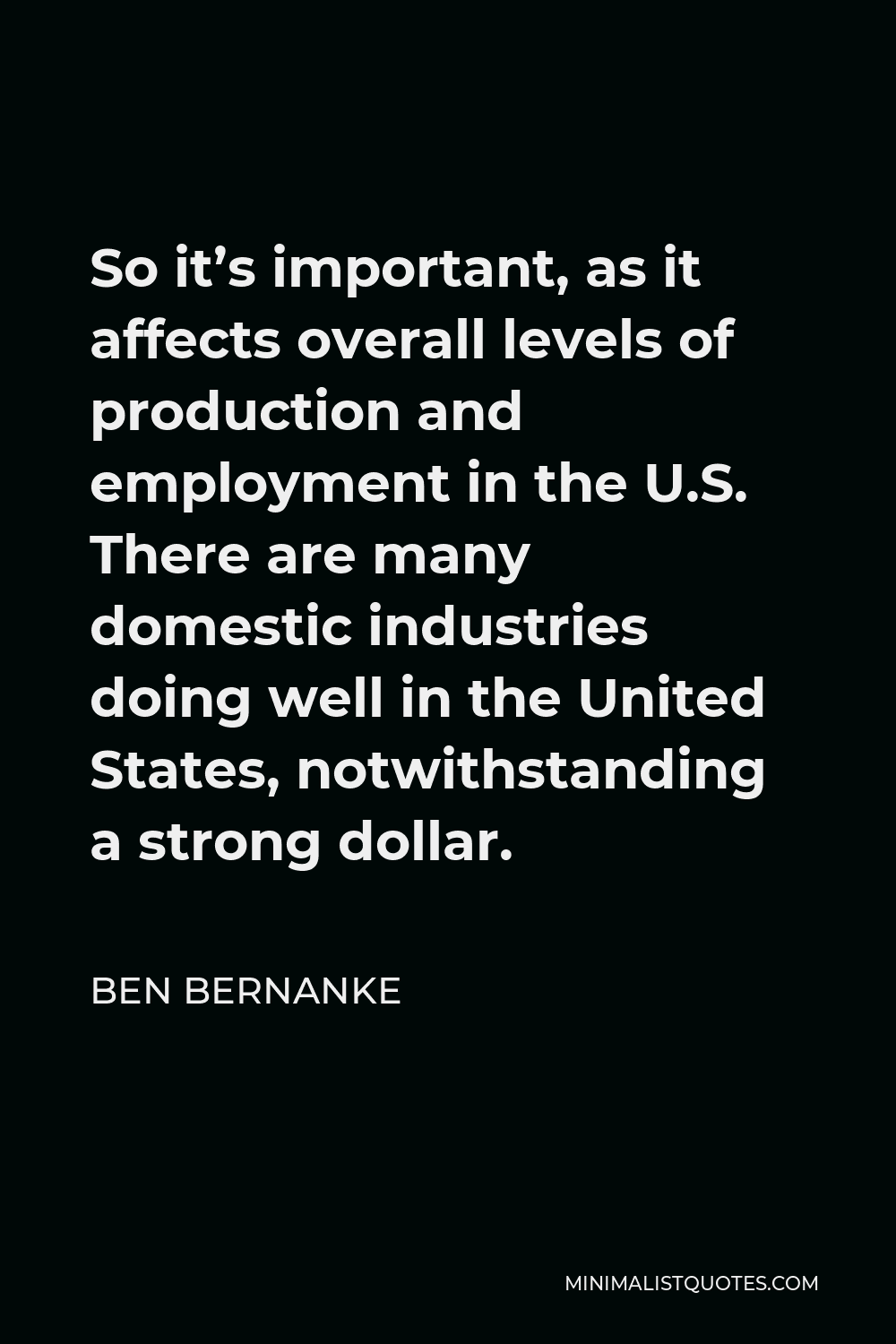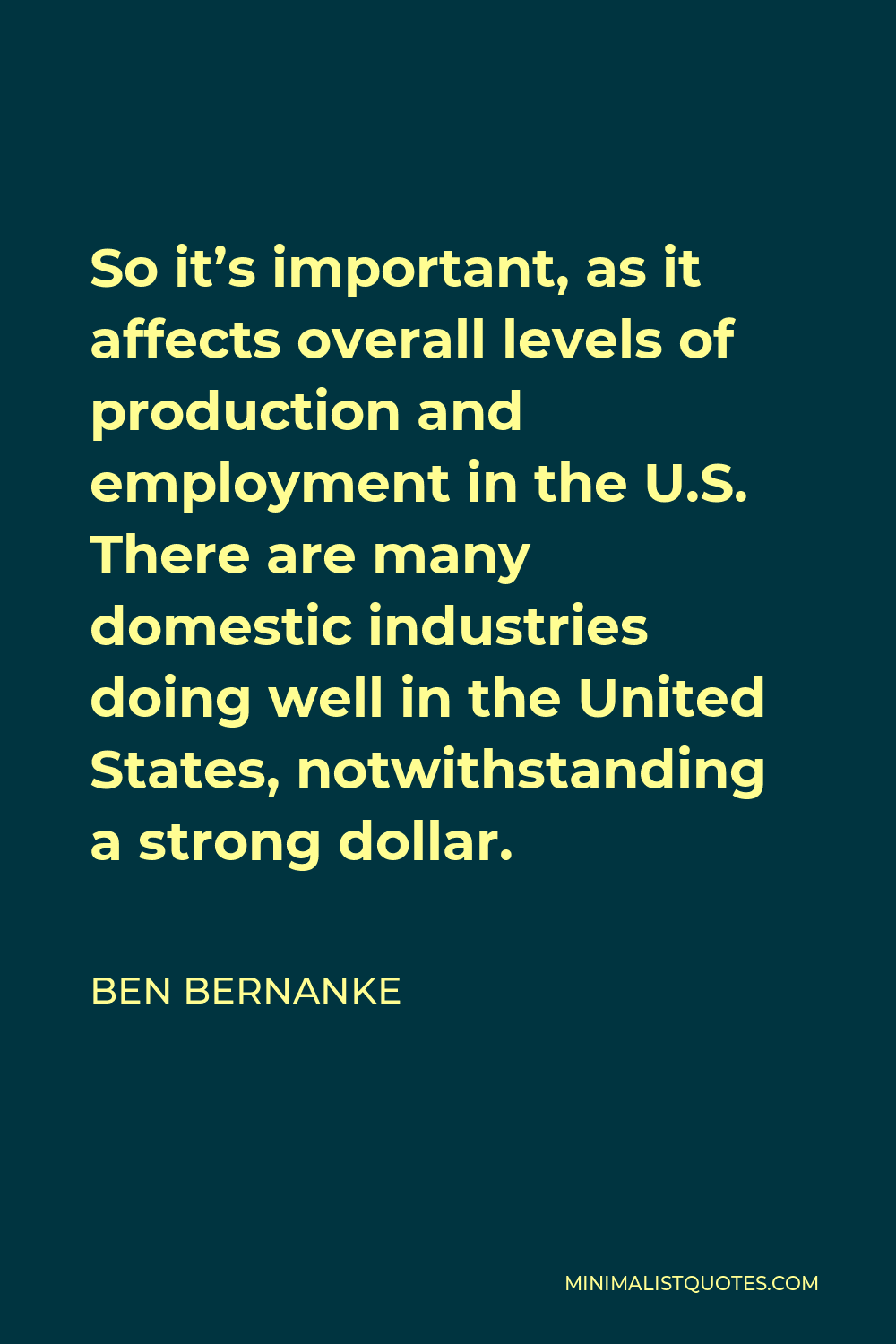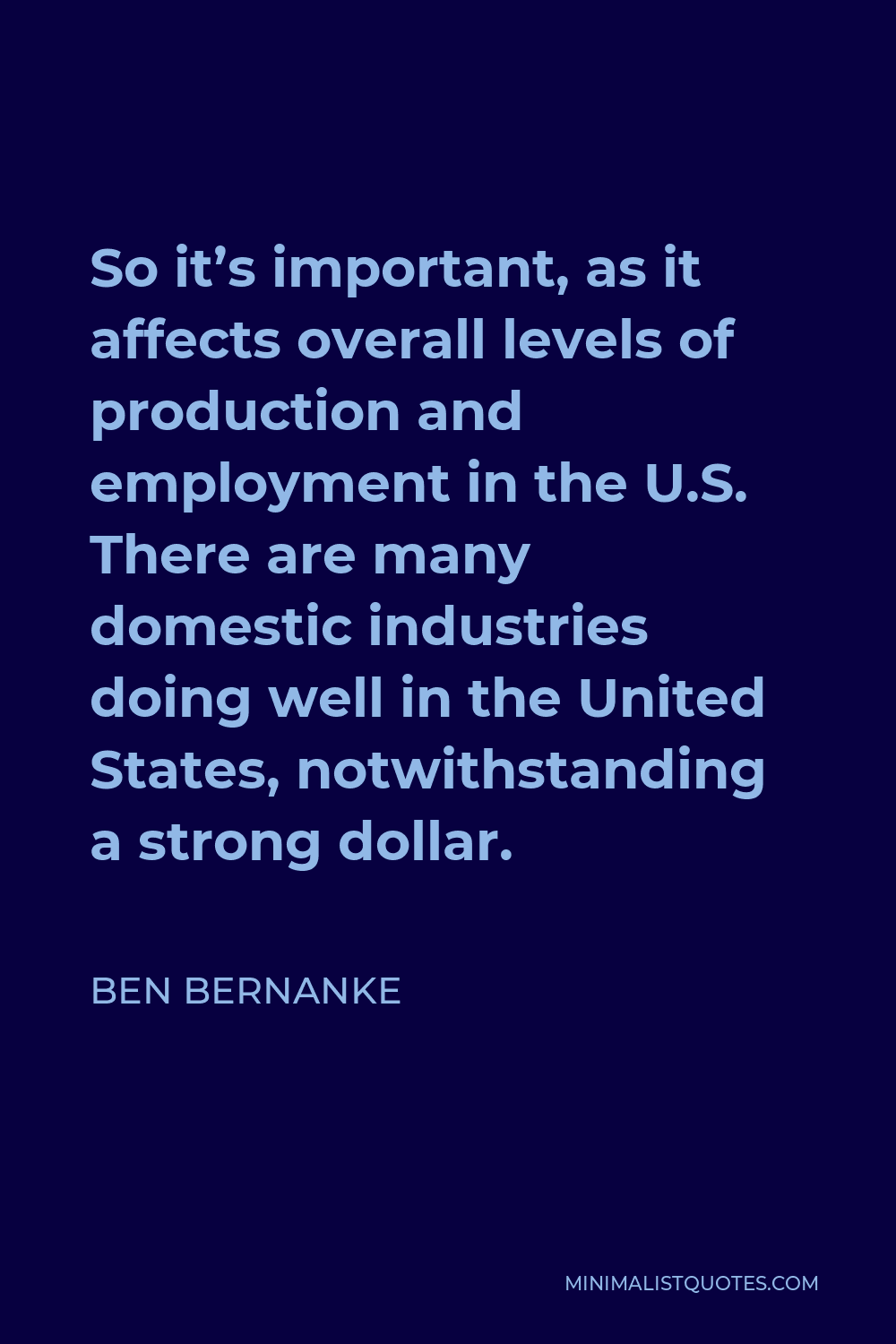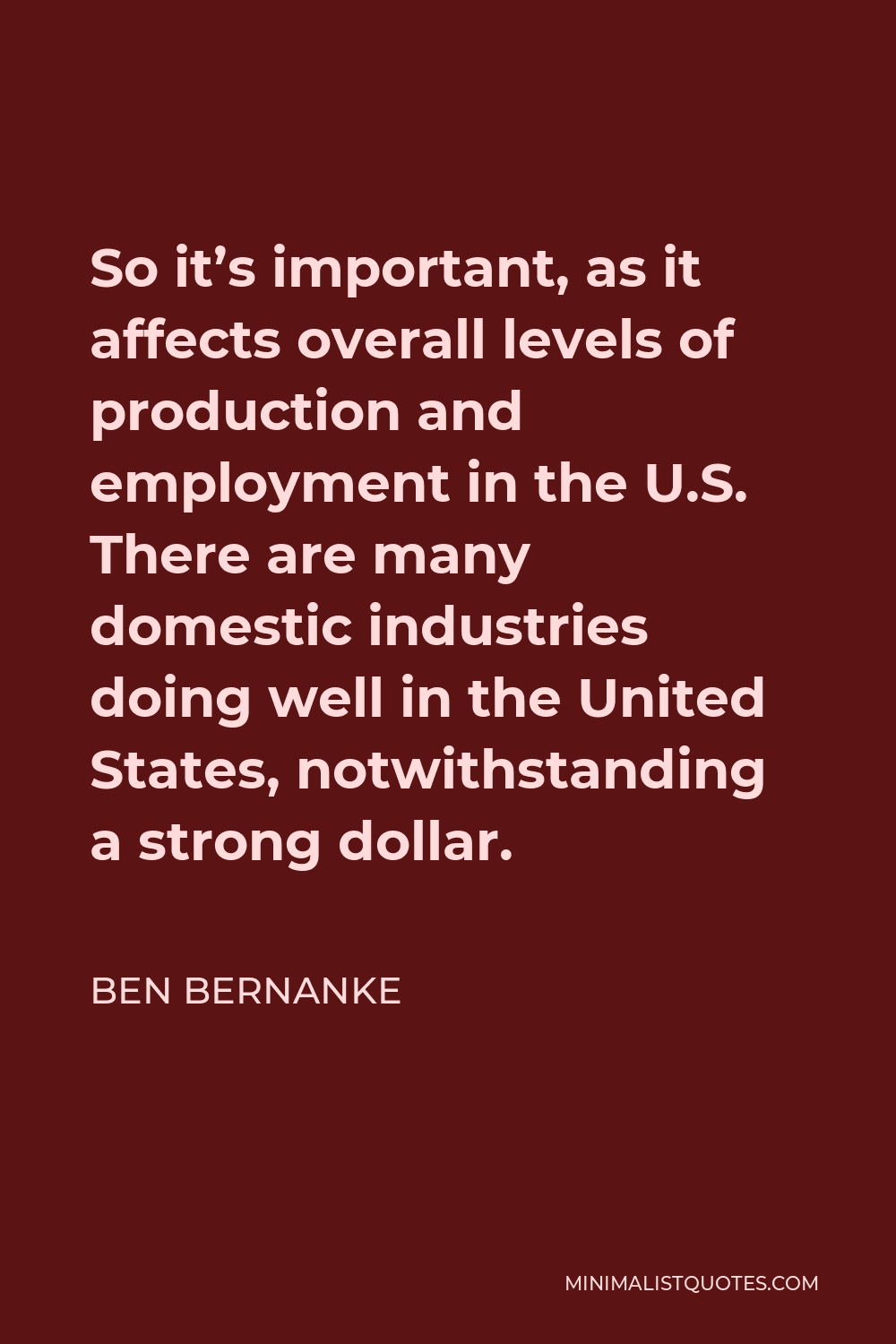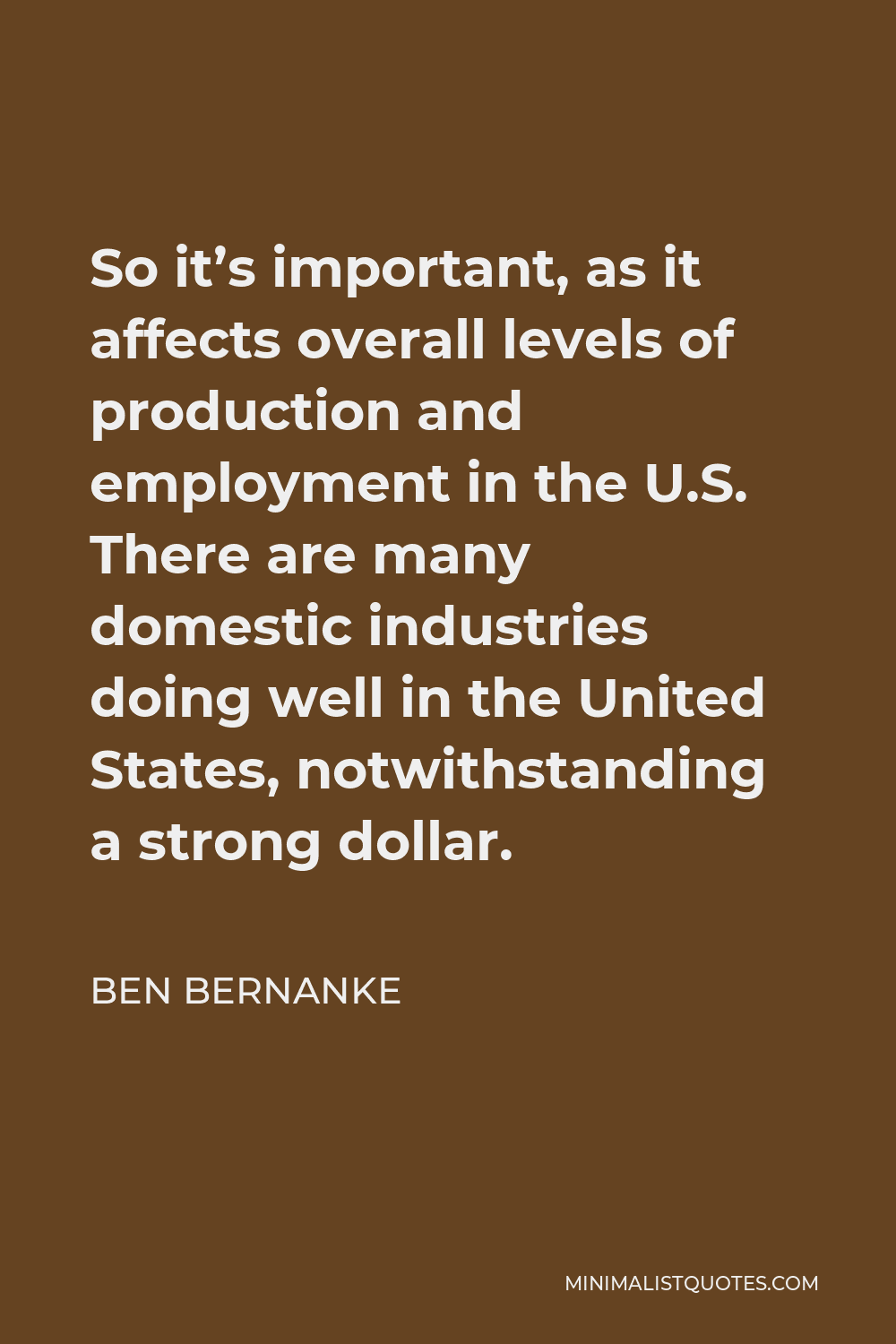The sources of deflation are not a mystery. Deflation is in almost all cases a side effect of a collapse of aggregate demand.. a drop in spending so severe that producers must cut prices on an ongoing basis in order to find buyers.
BEN BERNANKESo it’s important, as it affects overall levels of production and employment in the U.S. There are many domestic industries doing well in the United States, notwithstanding a strong dollar.
More Ben Bernanke Quotes
-





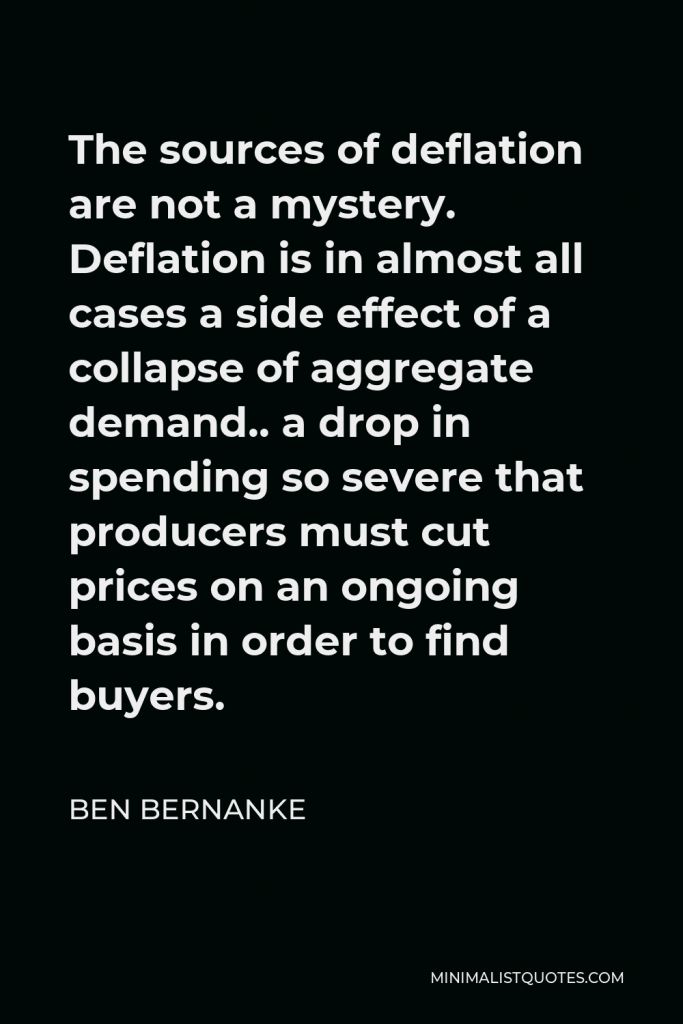

-





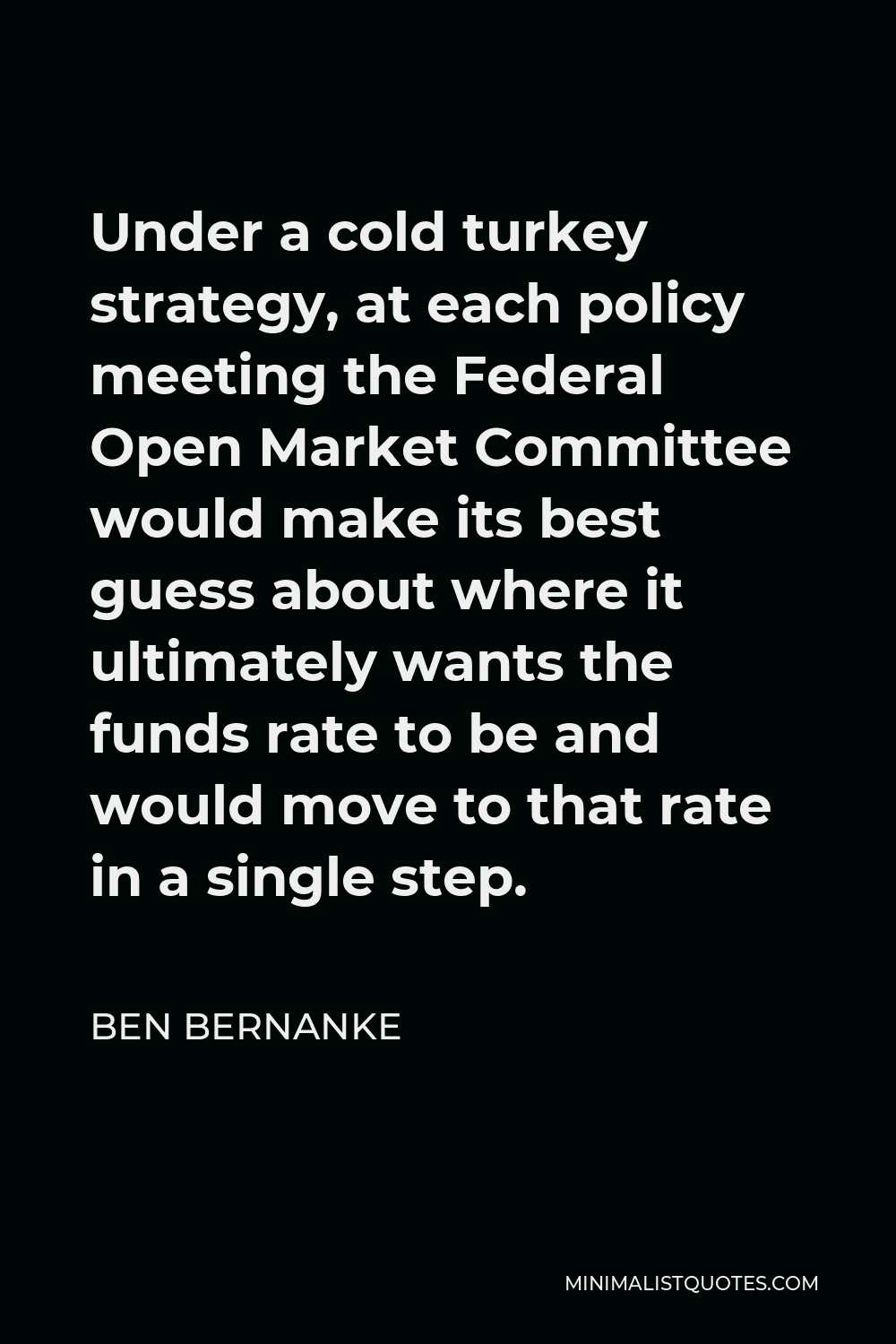
Under a cold turkey strategy, at each policy meeting the Federal Open Market Committee would make its best guess about where it ultimately wants the funds rate to be and would move to that rate in a single step.
BEN BERNANKE -





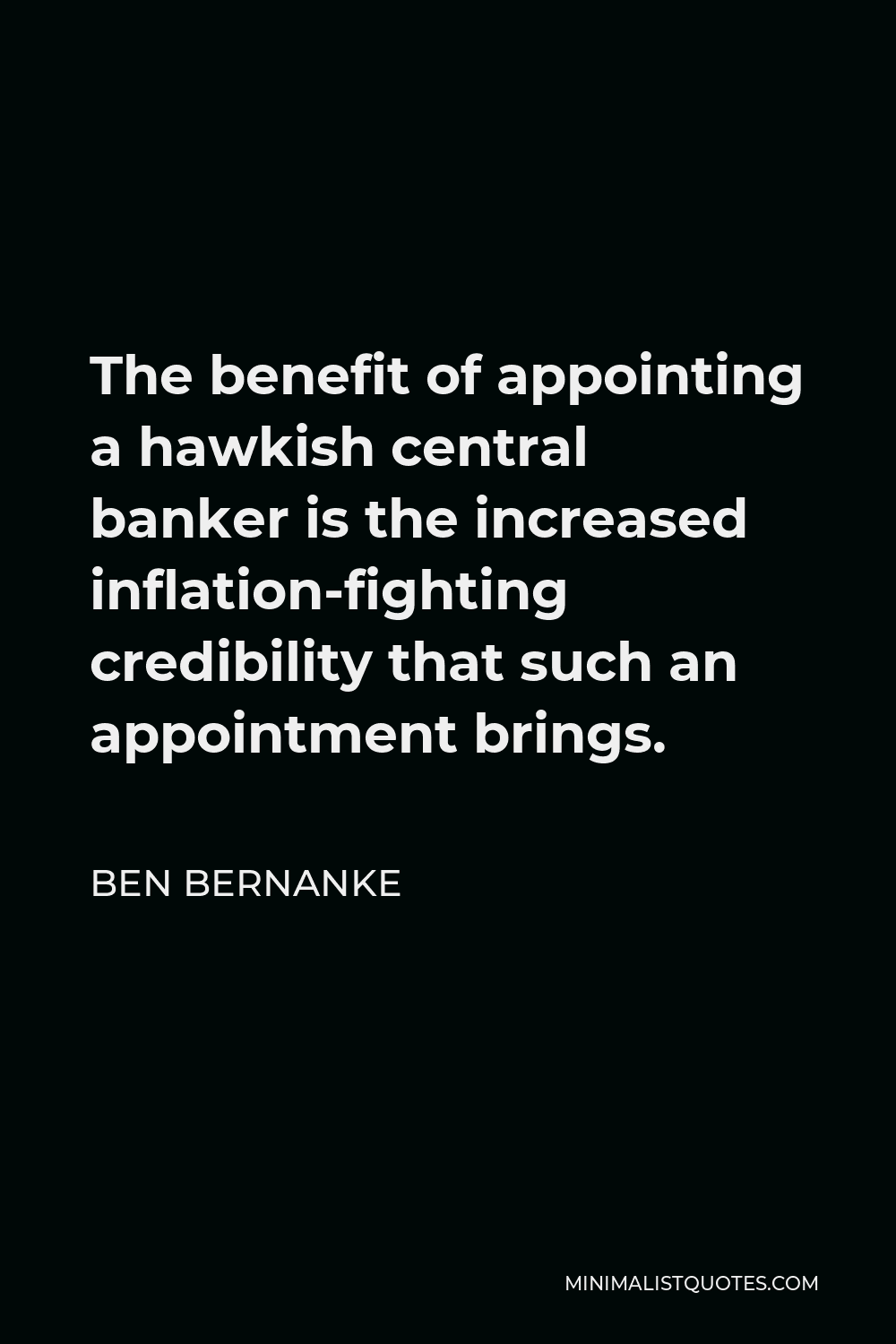
The benefit of appointing a hawkish central banker is the increased inflation-fighting credibility that such an appointment brings.
BEN BERNANKE -





![Ben Bernanke Quote - [Virtual Currencies] may hold long-term promise, particularly if the innovations Promote a faster, more secure and more efficient payment system.](https://minimalistquotes.com/wp-content/uploads/2022/10/virtual-currencies-may-hold-long-term-promise-part-683x1024.jpg)

[Virtual Currencies] may hold long-term promise, particularly if the innovations Promote a faster, more secure and more efficient payment system.
BEN BERNANKE -





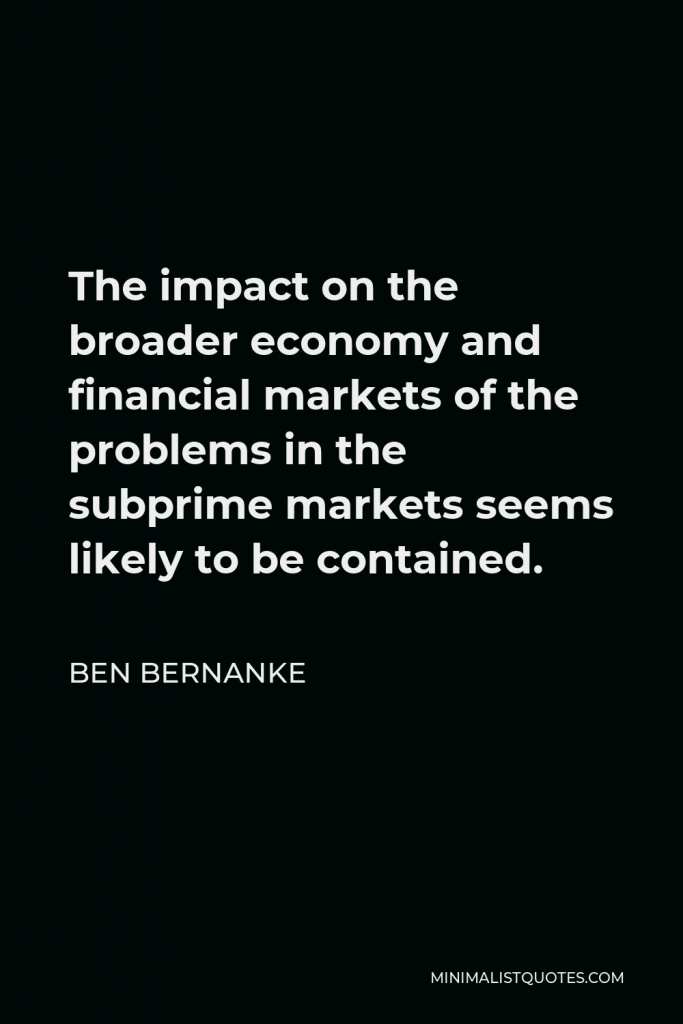

The impact on the broader economy and financial markets of the problems in the subprime markets seems likely to be contained.
BEN BERNANKE -





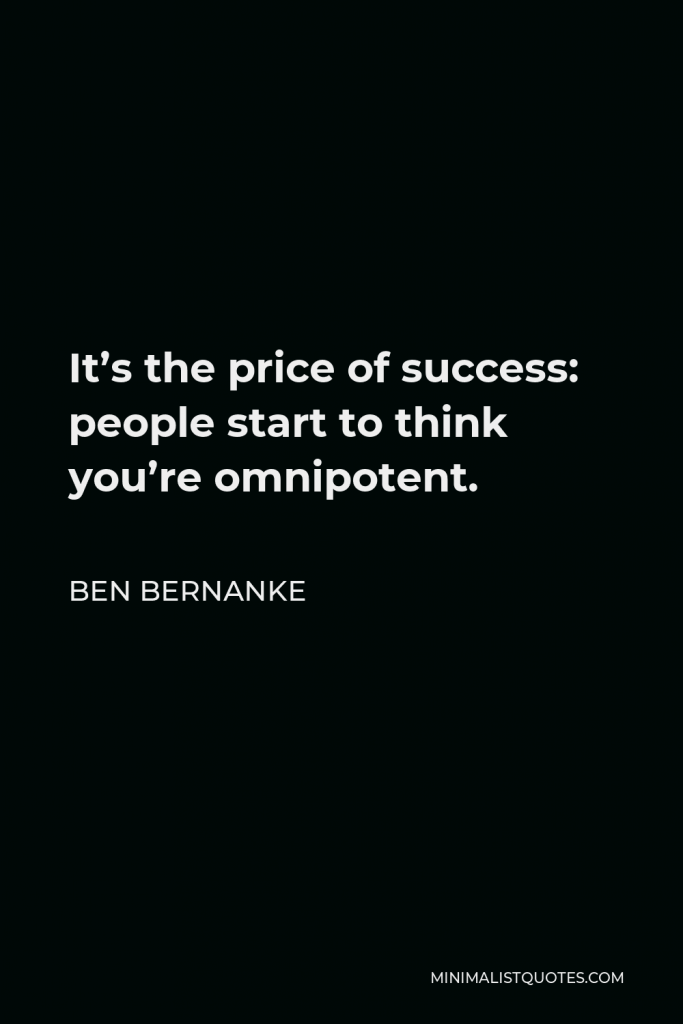

It’s the price of success: people start to think you’re omnipotent.
BEN BERNANKE -







If you are not happy with yourself, even the loftiest achievements won’t bring you much satisfaction.
BEN BERNANKE -





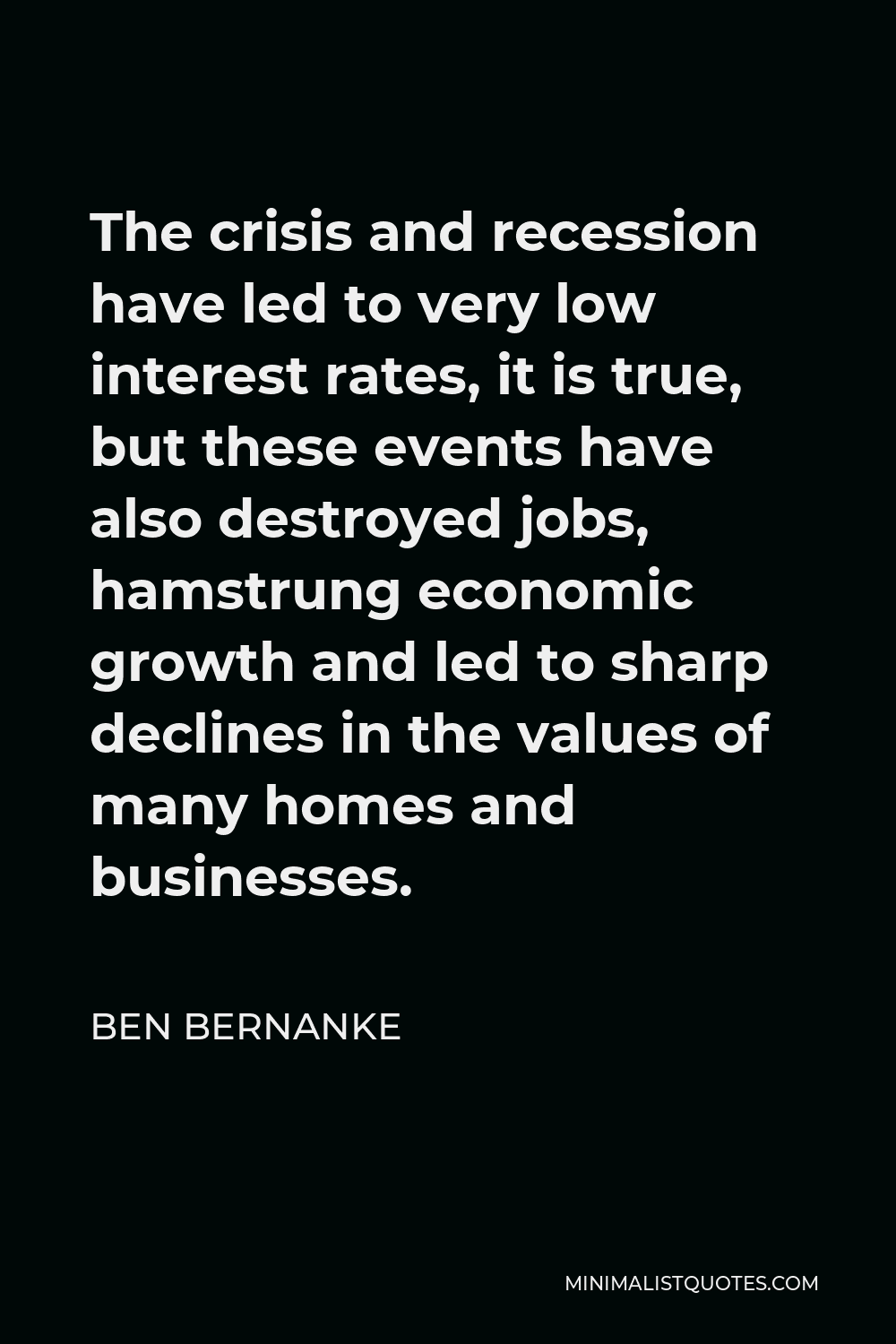
The crisis and recession have led to very low interest rates, it is true, but these events have also destroyed jobs, hamstrung economic growth and led to sharp declines in the values of many homes and businesses.
BEN BERNANKE -





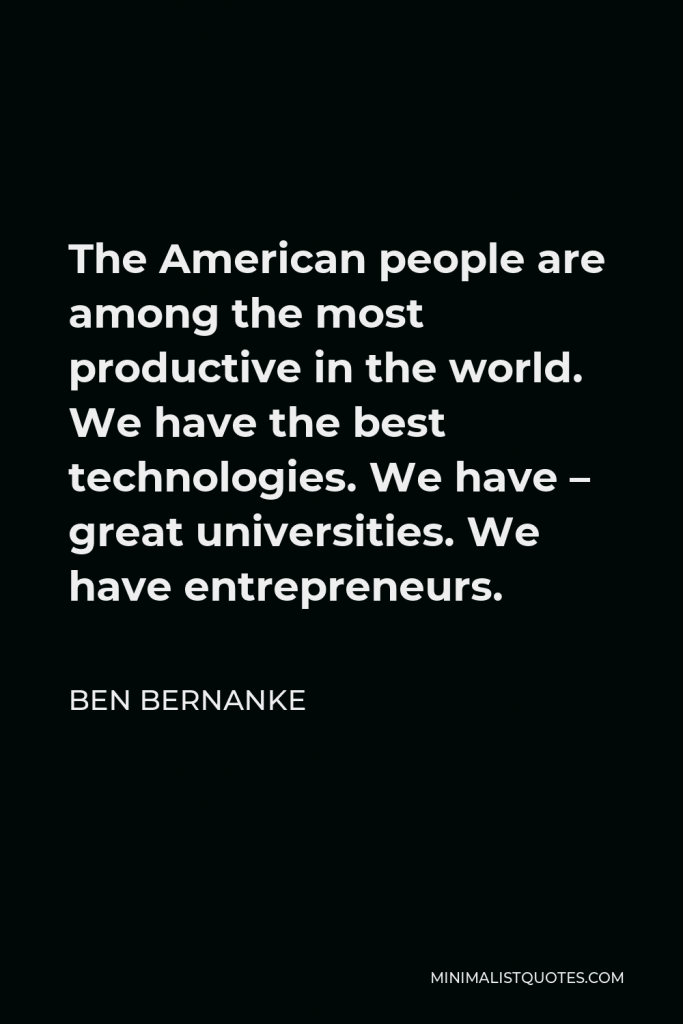

The American people are among the most productive in the world. We have the best technologies. We have – great universities. We have entrepreneurs.
BEN BERNANKE -





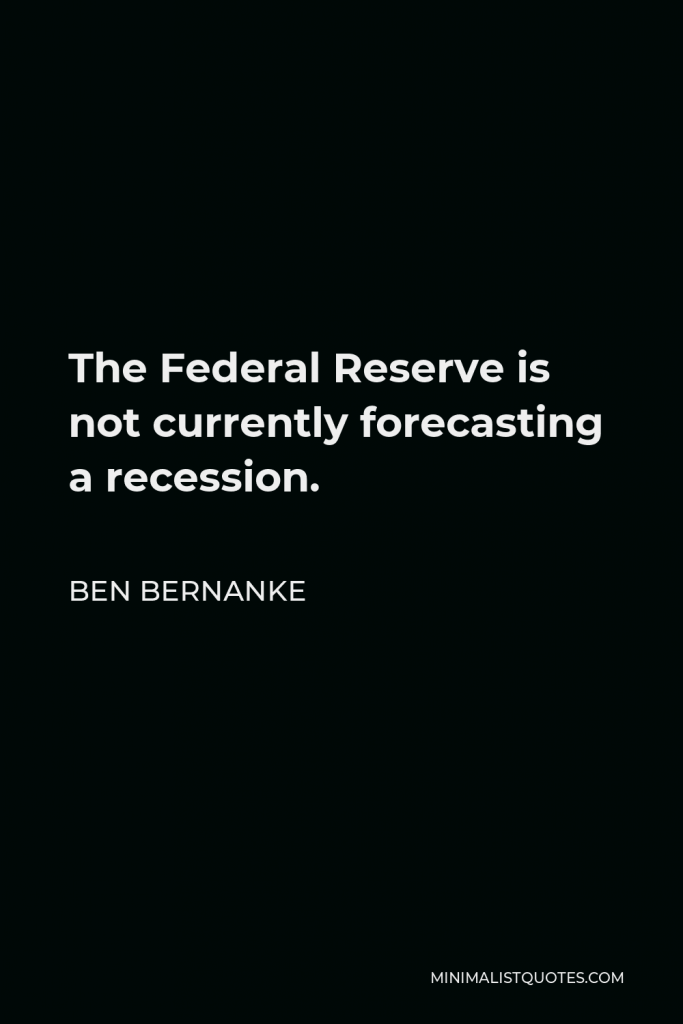

The Federal Reserve is not currently forecasting a recession.
BEN BERNANKE -





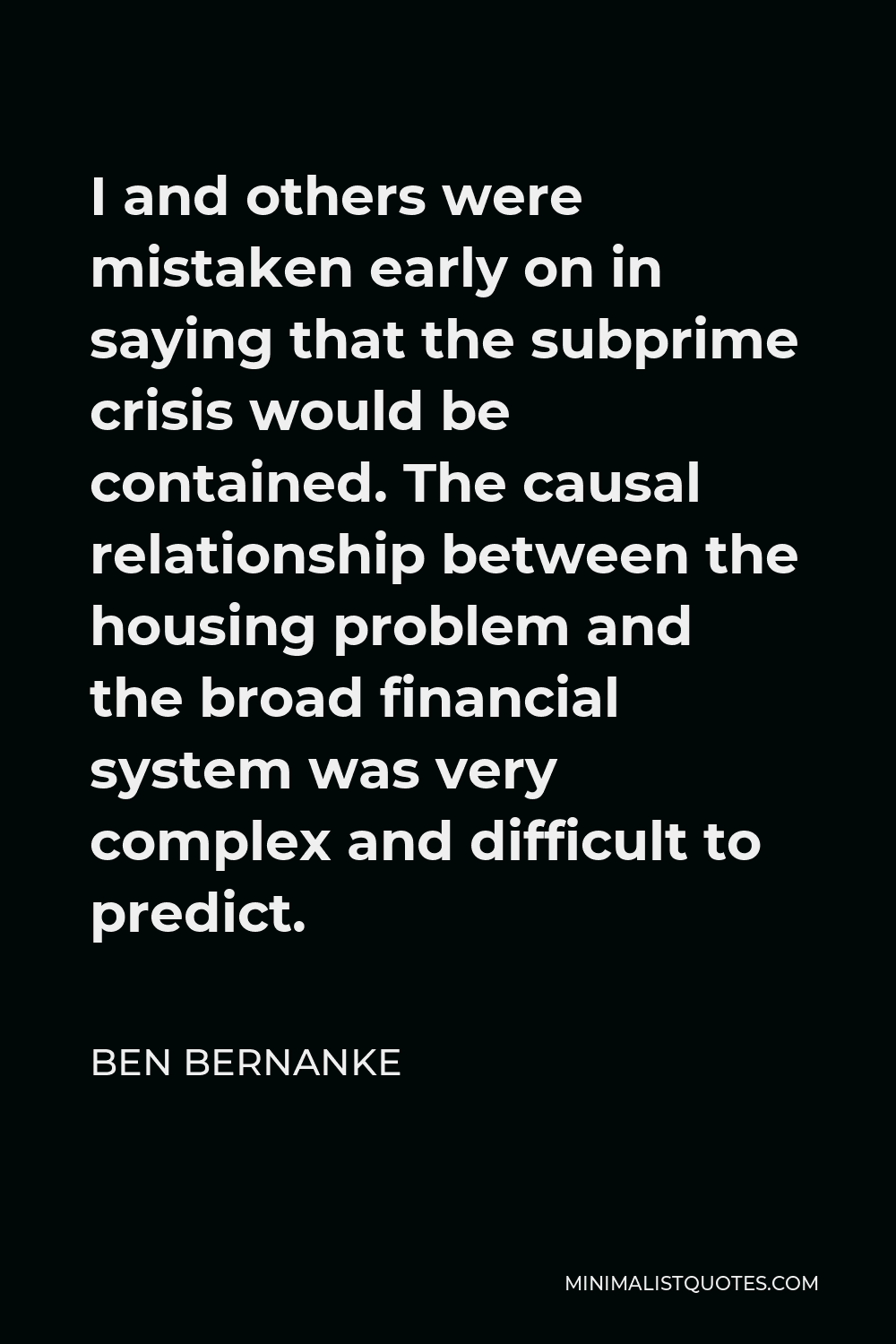
I and others were mistaken early on in saying that the subprime crisis would be contained. The causal relationship between the housing problem and the broad financial system was very complex and difficult to predict.
BEN BERNANKE -





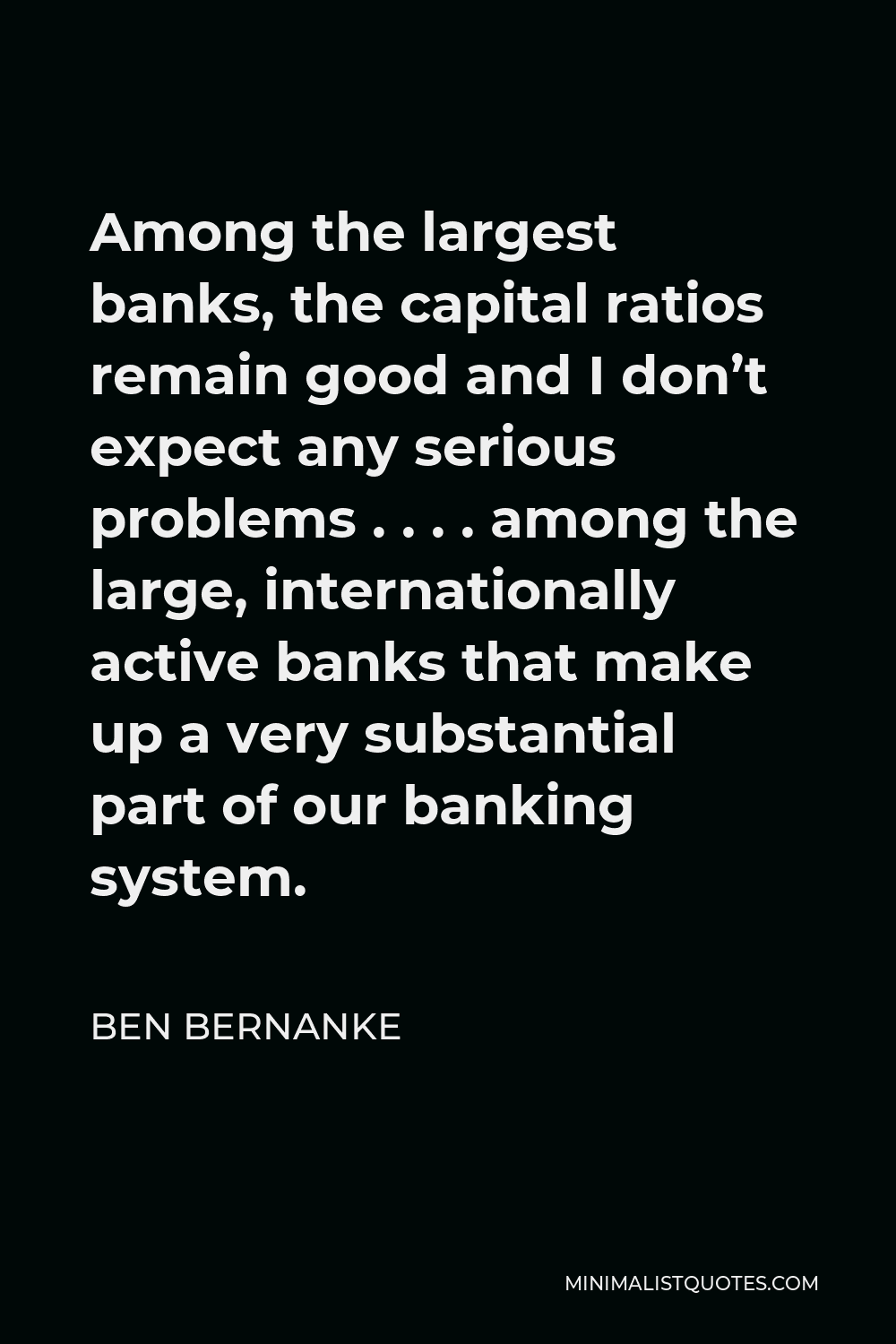
Among the largest banks, the capital ratios remain good and I don’t expect any serious problems . . . . among the large, internationally active banks that make up a very substantial part of our banking system.
BEN BERNANKE -





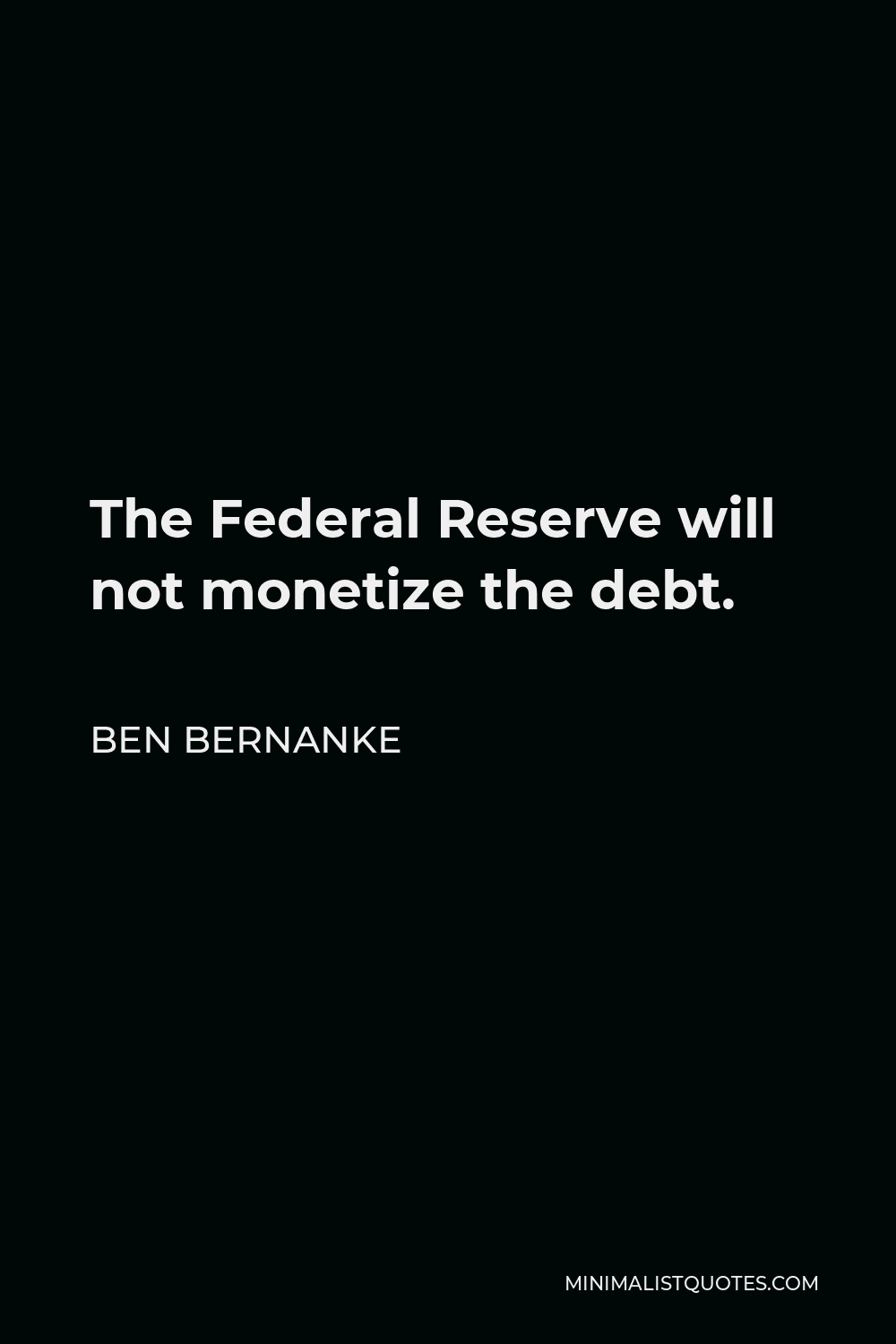
The Federal Reserve will not monetize the debt.
BEN BERNANKE -





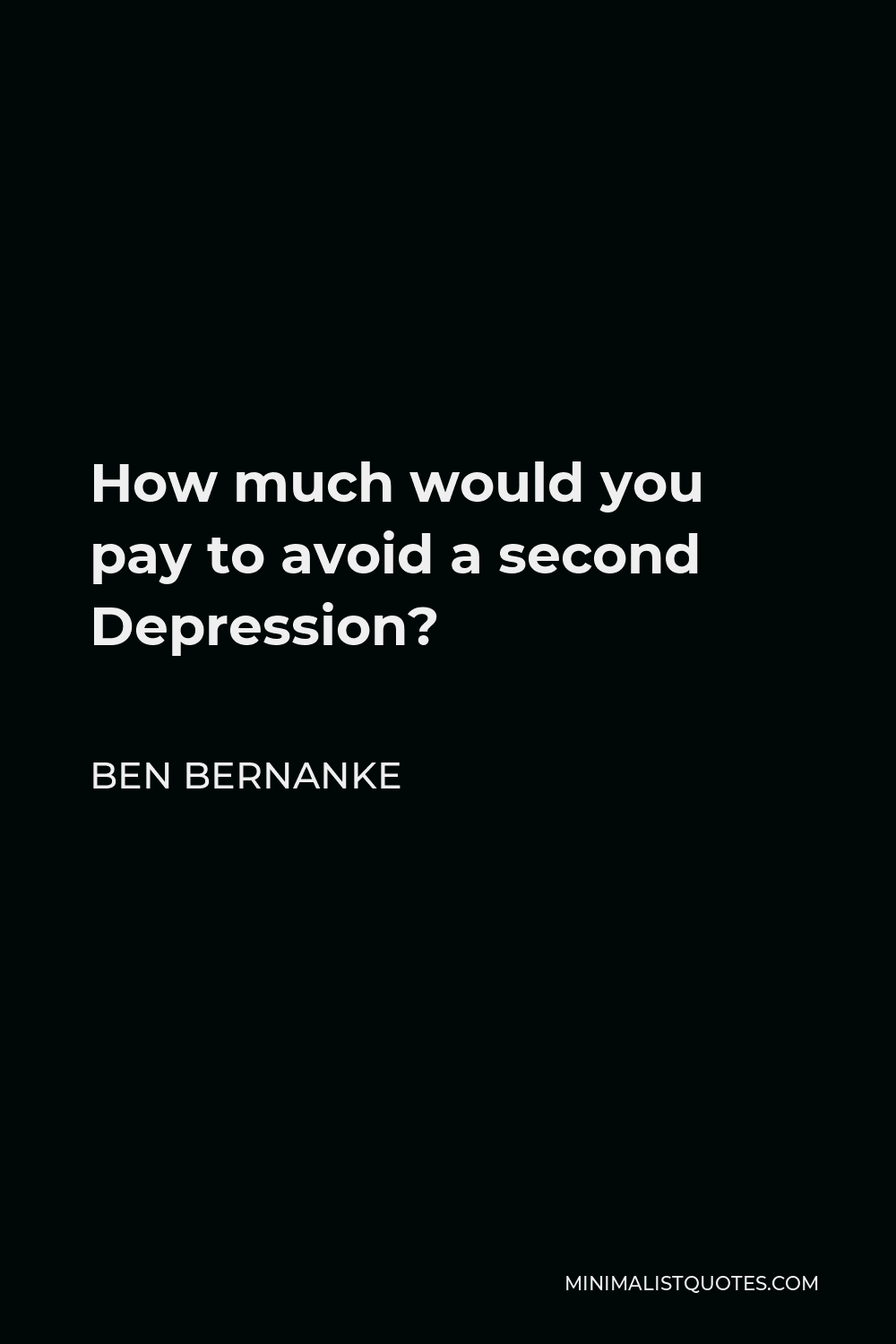
How much would you pay to avoid a second Depression?
BEN BERNANKE -





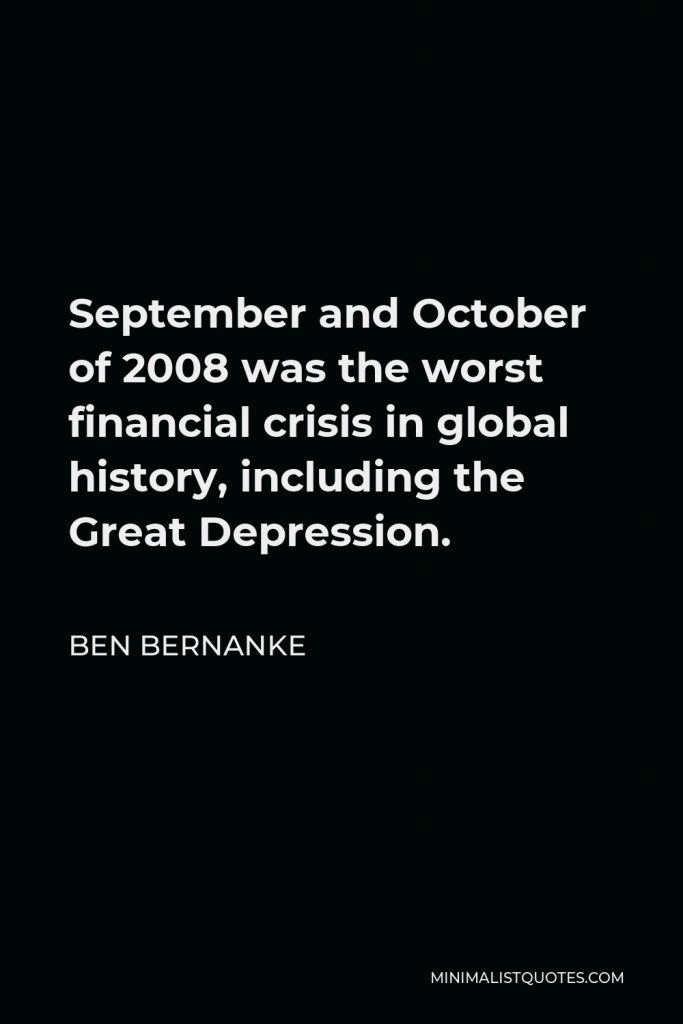

September and October of 2008 was the worst financial crisis in global history, including the Great Depression.
BEN BERNANKE -





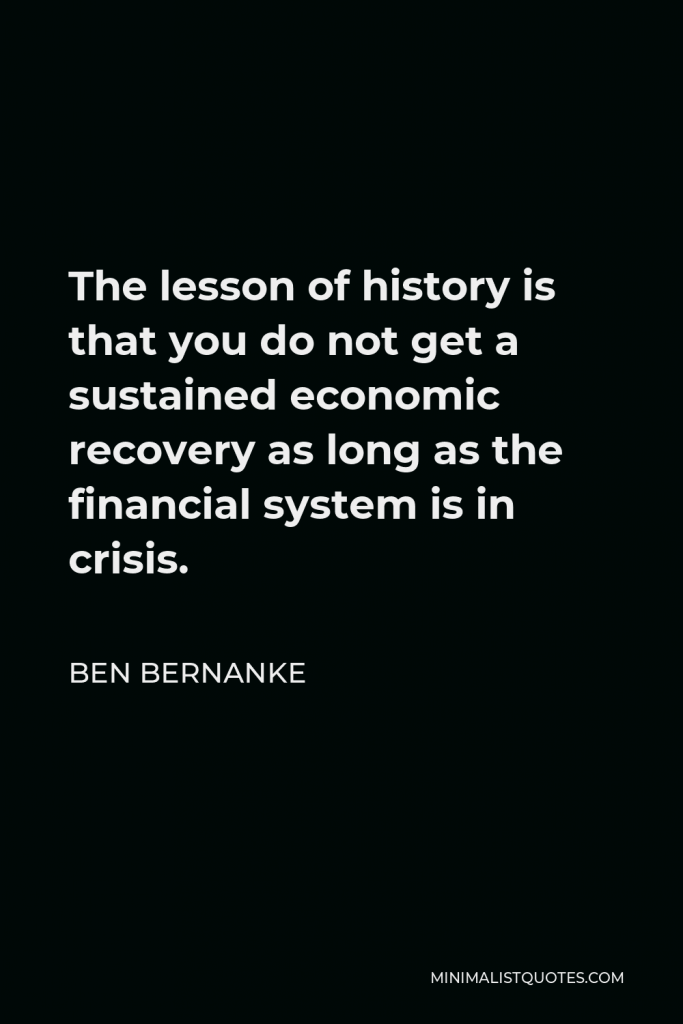

The lesson of history is that you do not get a sustained economic recovery as long as the financial system is in crisis.
BEN BERNANKE -





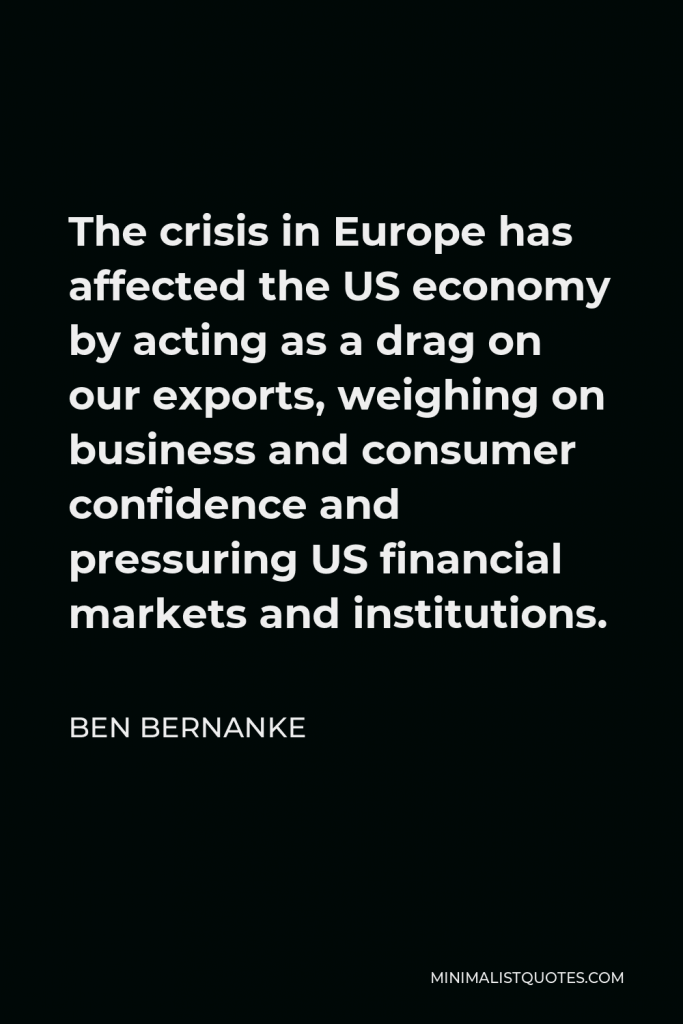

The crisis in Europe has affected the US economy by acting as a drag on our exports, weighing on business and consumer confidence and pressuring US financial markets and institutions.
BEN BERNANKE -





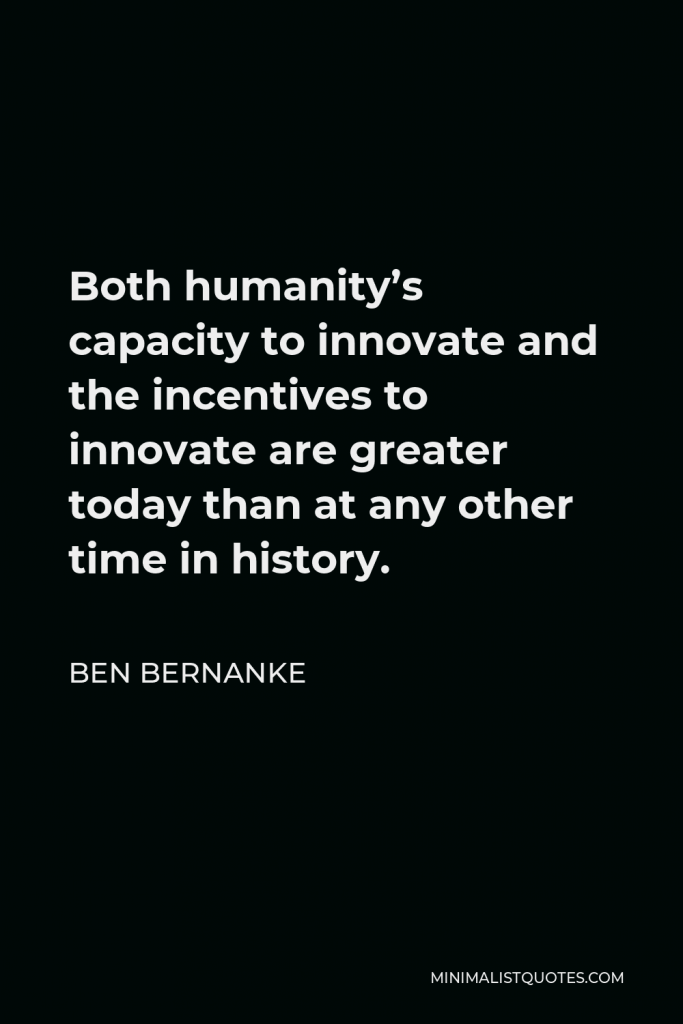

Both humanity’s capacity to innovate and the incentives to innovate are greater today than at any other time in history.
BEN BERNANKE -





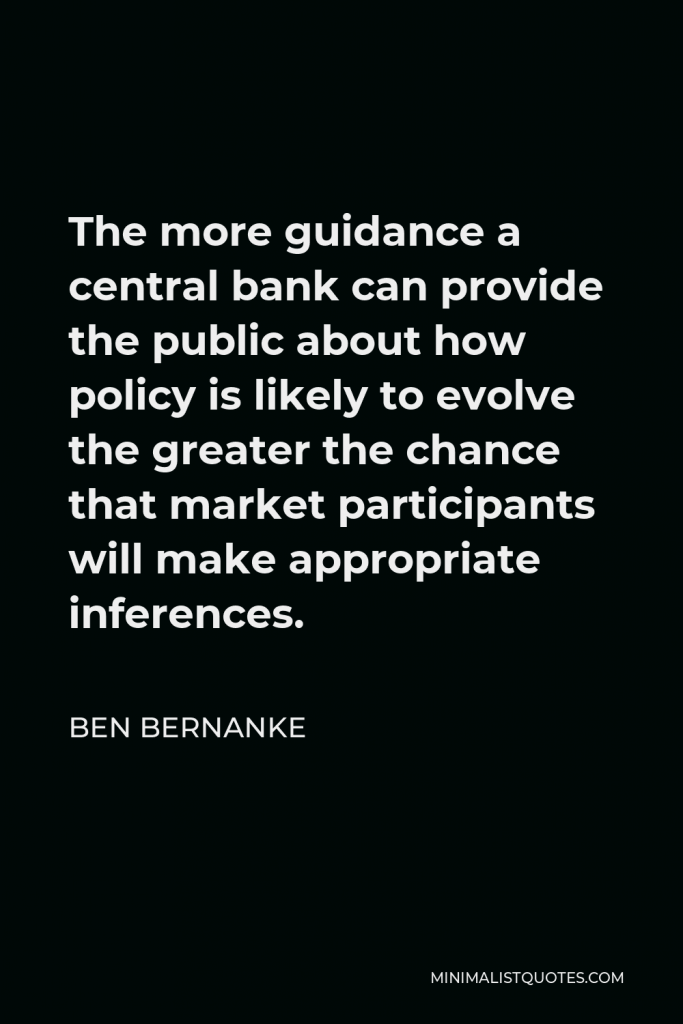

The more guidance a central bank can provide the public about how policy is likely to evolve the greater the chance that market participants will make appropriate inferences.
BEN BERNANKE -







Nobody likes to fail but failure is an essential part of life and of learning. If your uniform isn’t dirty, you haven’t been in the game.
BEN BERNANKE -





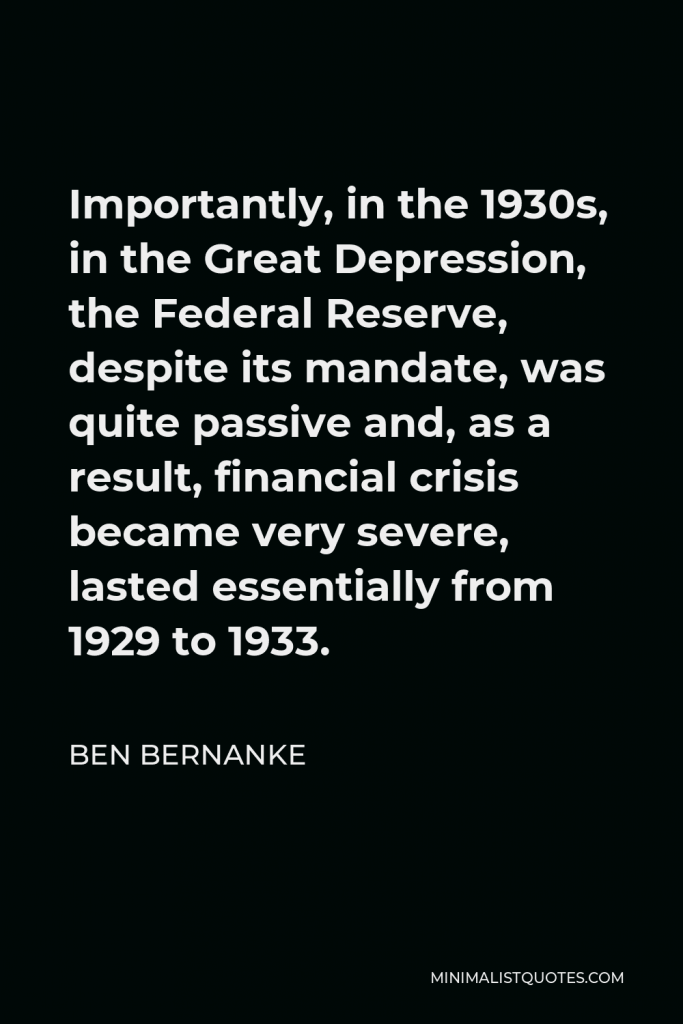

Importantly, in the 1930s, in the Great Depression, the Federal Reserve, despite its mandate, was quite passive and, as a result, financial crisis became very severe, lasted essentially from 1929 to 1933.
BEN BERNANKE -





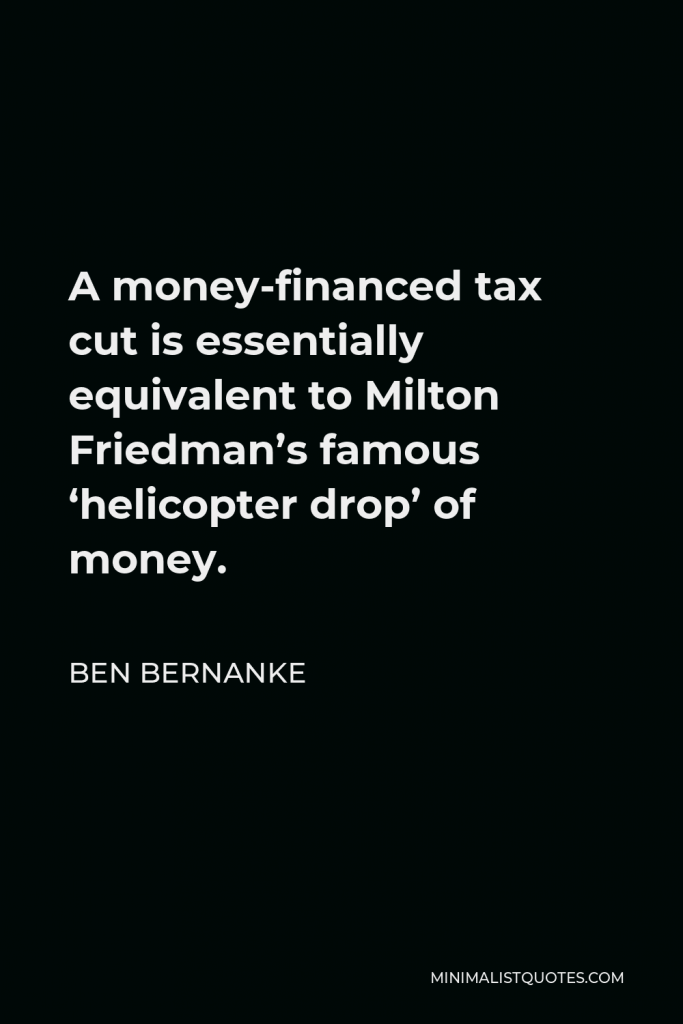

A money-financed tax cut is essentially equivalent to Milton Friedman’s famous ‘helicopter drop’ of money.
BEN BERNANKE -





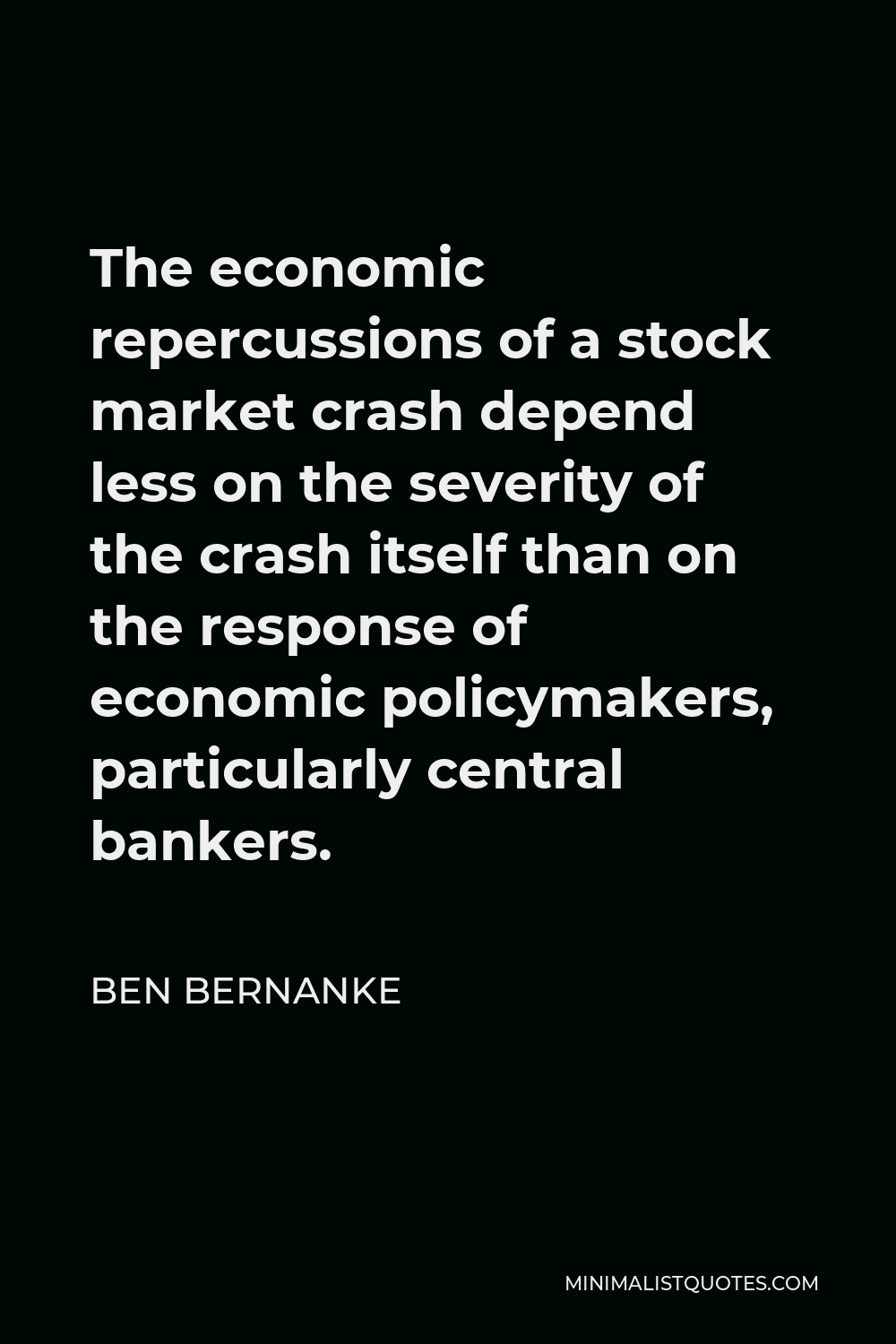
The economic repercussions of a stock market crash depend less on the severity of the crash itself than on the response of economic policymakers, particularly central bankers.
BEN BERNANKE -





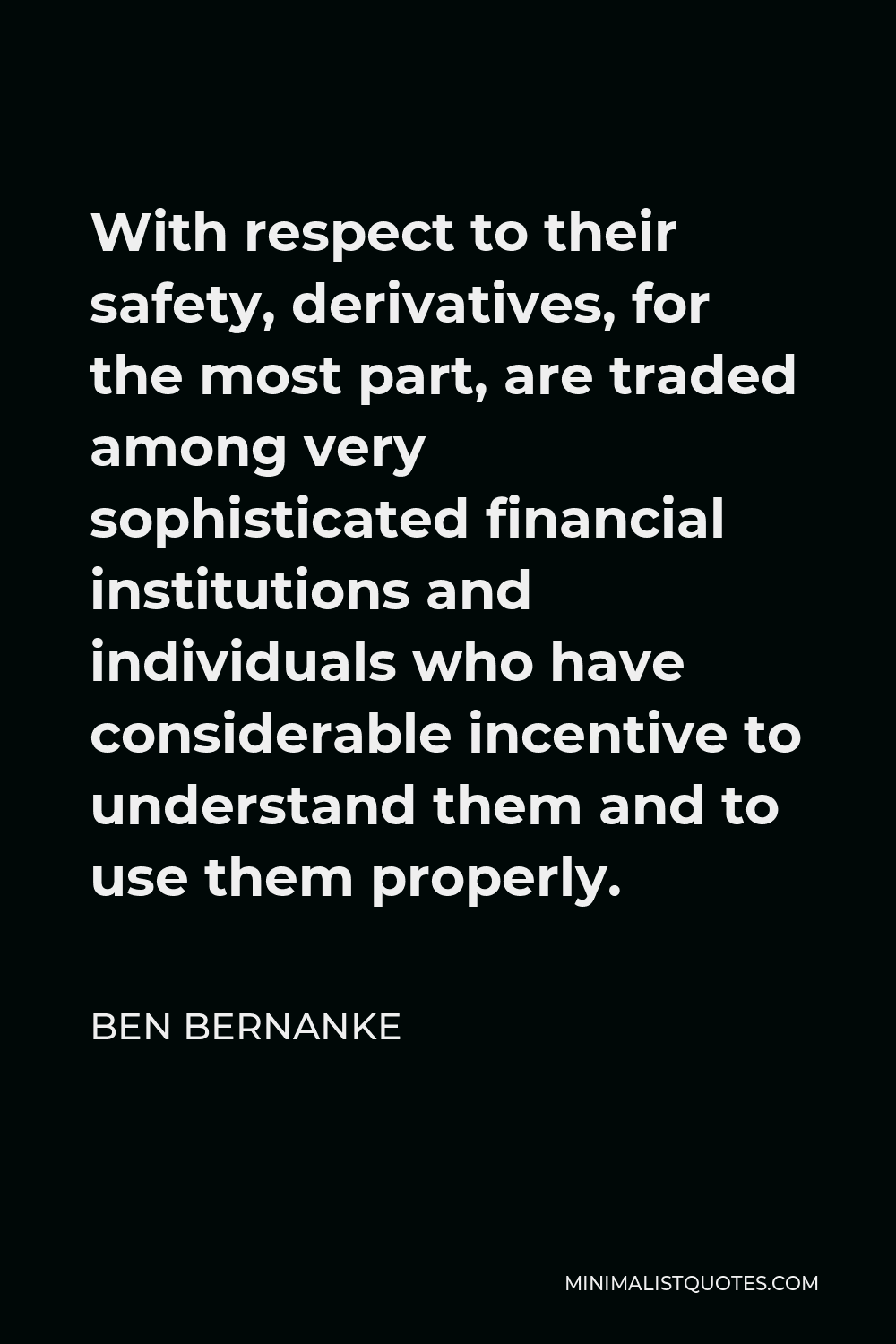
With respect to their safety, derivatives, for the most part, are traded among very sophisticated financial institutions and individuals who have considerable incentive to understand them and to use them properly.
BEN BERNANKE -





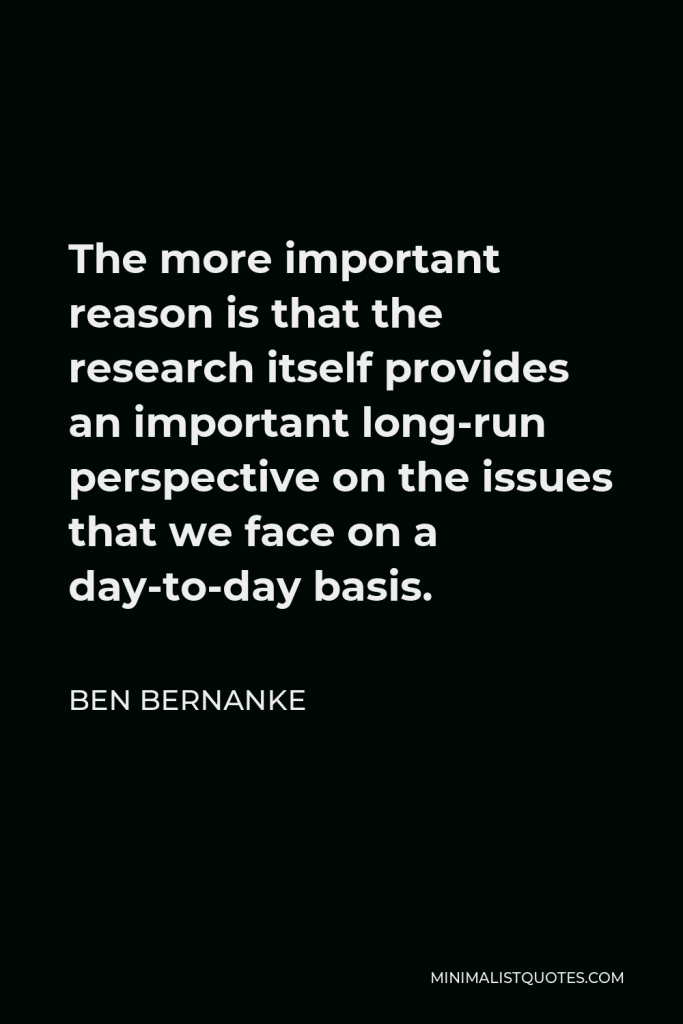

The more important reason is that the research itself provides an important long-run perspective on the issues that we face on a day-to-day basis.
BEN BERNANKE -





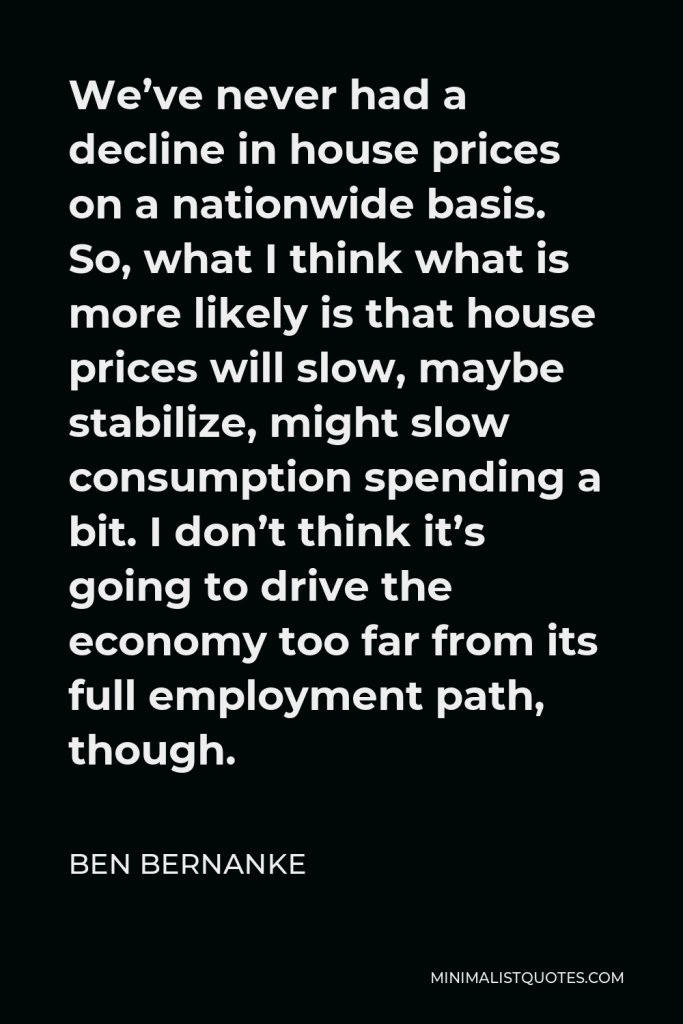

We’ve never had a decline in house prices on a nationwide basis. So, what I think what is more likely is that house prices will slow, maybe stabilize, might slow consumption spending a bit. I don’t think it’s going to drive the economy too far from its full employment path, though.
BEN BERNANKE -





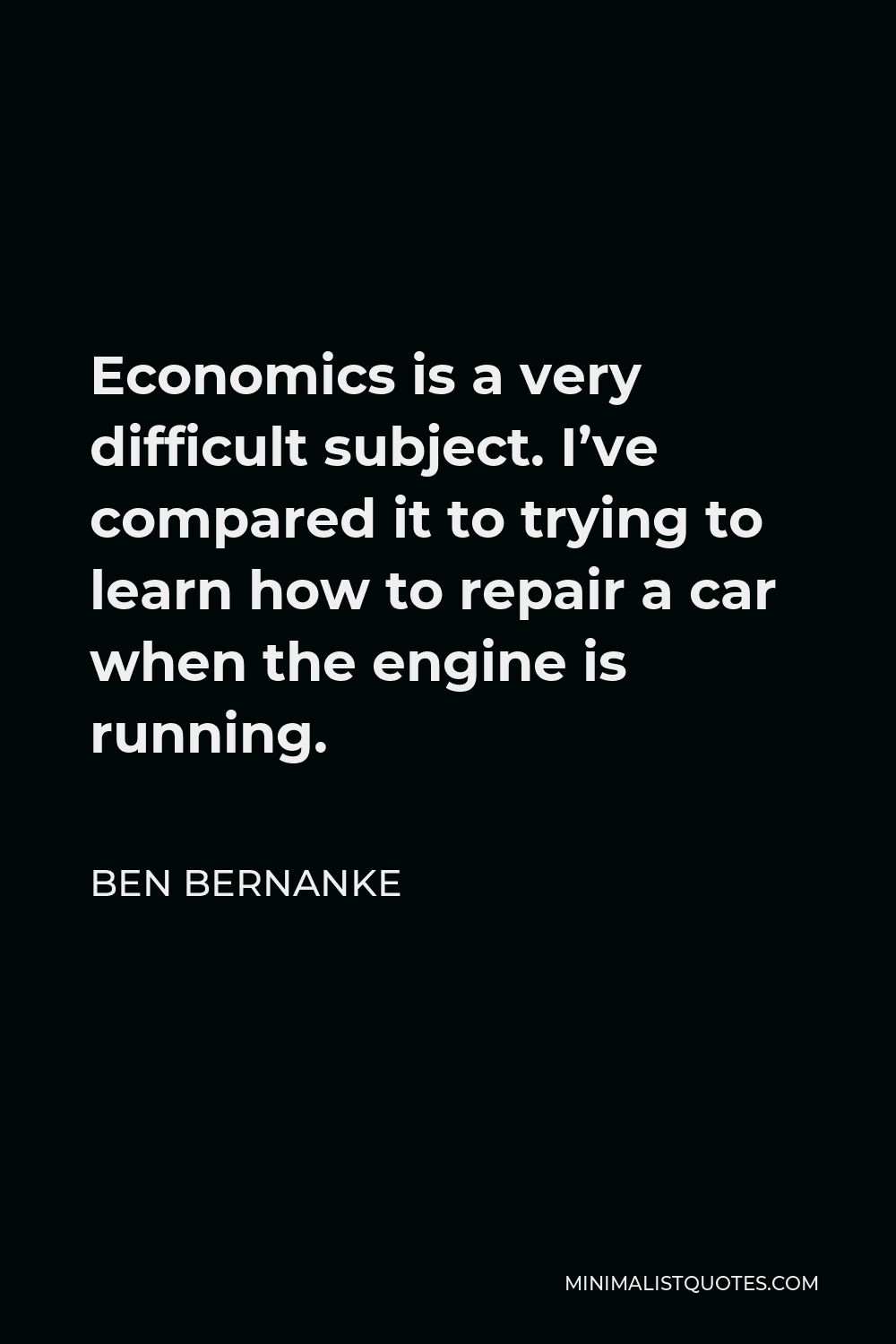
Economics is a very difficult subject. I’ve compared it to trying to learn how to repair a car when the engine is running.
BEN BERNANKE
